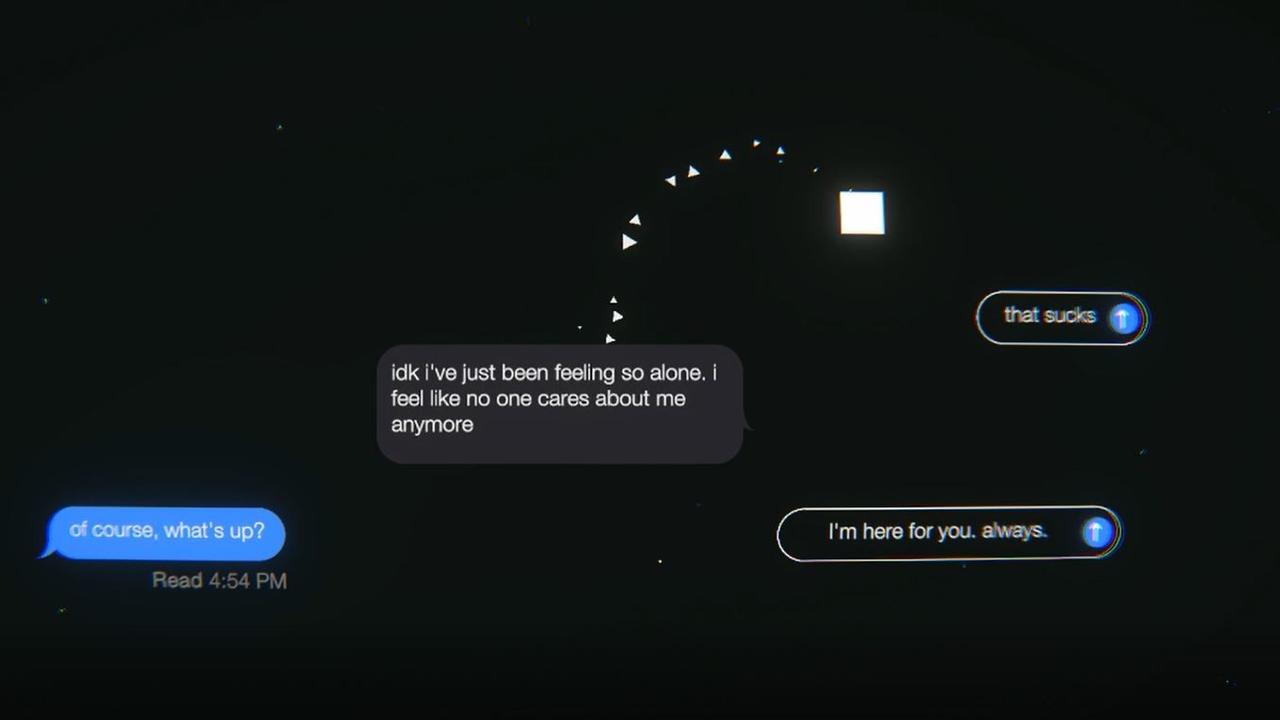Why leaving your partner on ‘read’ and not replying to messages can be ‘torturous’
It’s a very rude but common behaviour – and it could be a worrying sign for your relationship depending on why you’re doing it.
A decade ago it wasn’t even an expression, but being “left on read” is now an increasingly common experience, feared by many.
If you’re lucky enough that it’s never happened to you, you’ve probably done it to someone else.
Depending on why you’re doing it, the behaviour can also be a “sadistic” way of “torturing your partner” according to clinical and counselling psychologist Elisabeth Shaw, who’s also CEO of Relationships Australia NSW.
Leaving someone on “read” is when you open, but don’t reply to a text message on your phone or on social media platforms like Facebook and Instagram, which then sends a “receipt” to the other person letting them know you’ve read it.
If you’ve never experienced the feeling for yourself you can now simply simulate it in a video game, with the choice-based narrative platformer Left On Read available on the Steam store.
RELATED: Man’s bizarre message to match

RELATED: Teacher’s chaotic divorce email goes viral
Like in the game, in real life there are many reasons you might get left on read.
Ms Shaw told news.com.au “self-protection” is a “big part” of the reason people might leave someone on read or stop themselves opening a message they’ve been sent.
“When you convey that you’ve read something then it’s tied to an obligation to take action. If you’re overwhelmed you may not want to show you’ve read it: Not for any negative reason about the other person, it may actually be because you’re worried if you show you’ve read it you should have done something.”
She said the practice, and the often unclear motivations, can cause people to catastrophise and overthink because “we’re drawn to ruminate in a negative way about what the other people in our lives are up to”.
The ability to pretend you hadn’t seen a message provides an out for people who want to avoid difficult conversations, but Ms Shaw said that “sloppy behaviour” was an issue when people were “actively avoiding” their obligations to other people in their lives.
Whether it’s malicious avoidance or more benign anxiety, Ms Shaw warned it’s not “productive communication” and probably says something about both sides of the relationship, “specifically the relationship skills you have”.
— Tinder L’s (@tinderbadpatroI) December 17, 2020
The bigger question, she said, is about how individuals in a relationship decide to communicate with one another.
Ms Shaw said texting is so prevalent now that we have a tendency to overuse it.
“You stop seeing the woods for the trees, which is asking yourself, ‘Is this the best way to communicate on this subject?’”
Texting can be great for working out logistics like what’s for dinner and who’s picking up children, but it’s not an ideal place to bring up old fights or disagreements.
“Just because you use texting a lot, and even if it’s incredibly valuable in your relationship, you still need to think on any given topic: ‘Is this the best I can do, and is this the best thing for us to get the job done?’” Ms Shaw said.

While the introduction of the read receipt is perhaps the biggest factor, it’s not the only smartphone feature fuelling anxieties in relationships.
The reply indicator – the little ellipses that appear in your message threads when someone else is typing a message – can also create new problems.
“It can leave you more anxious and caught up in what those dots mean,” Ms Shaw said.
She said it could be a good thing if the person on the other end thought better of what they were about to say, but because there’s no way of knowing it can lead to anxiety.
“That should tell you this should be a conversation and not a text stream … There’s something about the written word that can be very clear but very misunderstood … it’s much safer to have a face-to-face conversation.”
Similarly, the desire to avoid triggering a receipt for a conversation you don’t want to have has led to the rise of another manipulative new technique we’ll call “screening”, where you read the contents of a message on the notification screen of your smartphone without even opening the app.
sorry i left you on read i didn’t mean to open it
— Alfie (@alfieugh) November 26, 2020
While they all have a hi-tech bent, they’re really just digital versions of a much-loved human practice – good old-fashioned lying.
How much of an issue that is “depends what’s behind the lying” according to Ms Shaw.
“If the lying is avoiding and that’s part of a pattern of avoiding in a relationship, or even worse, if it’s not just avoiding but it’s actually seeing your partner is upset or worried and deliberately tuning them out, that’s quite sadistic … it’s a bad sign because you’re potentially torturing your partner.”
On the other hand, if you’ve triggered a read receipt and need time to think and plan a good response, taking that time could be a good thing – but the other person needs to know that too.
“That’s the thing about the read receipt, as soon as you’ve sent the receipt it looks like you should have acted. Sometimes people need time to think to plan a sensitive, respectful reply. At its best, taking time to calm yourself down and do that is a great thing.”

Ms Shaw said telling the other person that you’ve read something but need time to formulate a response or have the conversation in person is “the perfect thing to do”.
“If you’re saying action will be taken it will hugely calm your partner down.”
Technology, particularly the smartphone, have created all new ways to live our lives, but not all of them are going to be a good thing.
Ms Shaw said technology can also “stir a really negative tone” around a relationship, especially if they’re used to keep tabs on or control your partner.
“If they’re used as a tracking device or some kind of hold you’ve got over someone – that I know where you are and I know you’ve read my message – that’s going to have a very negative impact on relationships.”



